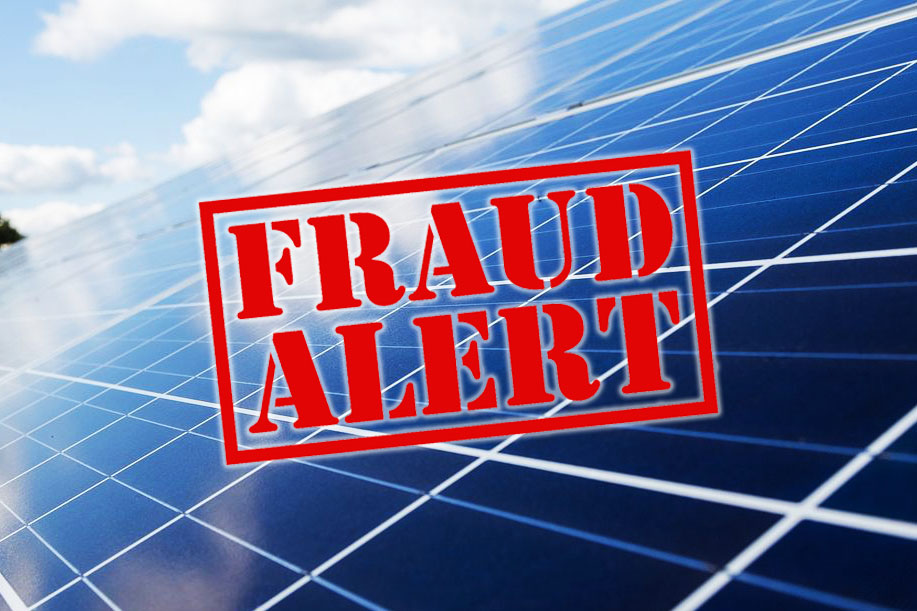In Italy, there are about 450 thousand photovoltaic systems, 60% of which are inefficient as a result of fraud. Some photovoltaic contracts have hidden costs or unclear clauses, proving to be real “fraudulent” contracts.

Here are some tips on how to recognize a scam from a truthful offer and especially how to act and how to request a refund of the amount paid.
The root of any “scam” lies precisely in the unfairly open commercial practices that go to the detriment of the consumer, especially related to the exploitation of electricity and solar energy. It is a real deception when these systems are marketed apparently at no cost, by the company, through incentives that are perhaps no longer in force or without specifying that they rely on tax relief that actually spread over a period of 10 years.
Elements that make up the cost of a photovoltaic system
The cost of a photovoltaic system is measured in kw and normally this is equal to 1500 euros per kw. In a house, the system must be at least 3 kW and for this reason, the price can even rise up to 4500 euros. This amount must be added to the installation and the maintenance costs. The price rises up to around 6000 euros for a good quality photovoltaic system. Therefore, the decision to install a photovoltaic system should not depend on how much money you are going to save since the savings will only occur in the long term. Your choice must be environmentally driven. Let’s now have a closer look at which tax relief is currently in force
Current tax relief
Photovoltaic systems are placed on the same level as any other type of building renovation, especially those that are installed on the roof of a house. For this reason, you can get up to 50% reductions. Therefore, the State does not give any incentives on the energy that is produced but simply returns half of the costs incurred for the installation of such a system. The refund takes the form of tax relief that is, however, spread over about 10 years, a fairly long period of time in comparison to the costs that you have to pay immediately.
Therefore, the first thing to do is not believe those who promise to completely eliminate your electricity bill or that you will get special gains or savings. The functioning of a photovoltaic system is essentially based on this idea: the system produces what is generally consumed, if this is for domestic use.
What you shall keep in mind, however, is that the system requires continuous maintenance so the cost you will have to pay is not only the initial cost of the installation but with the passage of time, you will also have to bear more to ensure that the system works at its best, and that above all, does not leave your house without electricity. Moreover, the panels must be cleaned at least once a month and this can become more or less frequent depending on the climatic conditions on site.
The seller shall explain all these conditions, advantages and disadvantages before you sign a contract. Afterwards, you will be able to better assess whether or not you wish to make the investment.
Hypothetically “fraudulent” behaviors
Very often the consultant, who has this kind behavior does not specify all the disadvantages of choosing a photovoltaic system; he only shows you a futuristic scenario where you can, for instance, save the planet thanks to your photovoltaic system.
What can happen is that the systems you will be proposed have been stocked for a long time and that are not updated to the latest technology. Very often, it is not specified if the installation, warranty, maintenance and connection to the grid are included or not, but the user assumes that they are and perhaps the seller plays on this belief. So, the customer will find himself facing these additional costs that will increase the total amount he will have to be pay compared to the very limited costs proposed by the consultant at the time of purchase.
It may happen that the system will be delivered by a courier and not by an installer. If the seller is “ill-intentioned”, contacting him won’t be very useful since he will want to get your money as soon as possible before you decide to withdraw from the offer.
So, in addition to paying attention to these aspects and to ask for all the specifications and implementation stages included or not included in the contract, our advice is to “understand” before getting involved with any scams and to collect as much information as possible about what a photovoltaic system needs, what you need to buy, what the seller is really going to give you. You will also need to make sure what you are buying and what the benefits will be. And don’t forget to rely on professionals!
